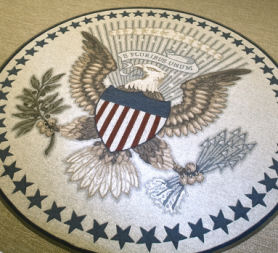WikiLeaks release: Saudi Arabia urged Iran attack
Whistle-blowing website WikiLeaks has released 250,000 US classified documents, including documents showing that Arab leaders are privately urging for an airstrike on Iran.
The WikiLeaks documents, reported by five newspapers worldwide including The Guardian in the UK, will be released in stages over the next few days and weeks.
The cables also revealed that US officials have been instructed to spy on the UN’s leadership, the Guardian reported, and give Washington’s evaluation of many other sensitive international issues.
The documents given to the Guardian show King Abdullah of Saudi Arabia has repeatedly urged the United States to attack Iran to destroy its nuclear programme, saying they should “cut off the head of the snake” while there is still time. Secret memos from US embassies across the Middle East also describe how other Arab allies have also agitated for military action against Tehran.

One cable stated that the Saudi King was recorded as having “frequently exhorted the US to attack Iran to put an end to its nuclear weapons programme”. Channel 4 News has been unable to independently verify the authenticity of the leaked data.
State department spokesman PJ Crowley said today it was US policy not to comment on materials, including classified documents, which may have been leaked.
Julian Assange: hacking on the electronic frontier
The WikiLeaks founder has taken investigative journalism into the electronic age.
But can he survive now that he has become the story?
Who Knows Who peers into the secretive world of Julian Assange.
Read more: Julian Assange: hacking on the electronic frontier
US Secretary of State Hillary Clinton and American ambassadors have been contacting allies around the world in recent days to brief them on the leaks.
The State Department’s senior lawyer Harold Koh had written to WikiLeaks founder Julian Assange. He warned that the publication of the documents could harm America’s standing by exposing secret military operations.
He was writing in response to a letter from Mr Assange and his lawyer about the safety of people who might be named in the files. Mr Koh said the US would not co-operate or negotiate with WikiLeaks.
Shortly before the documents were released, WikiLeaks reported on social media network Twitter that they were under “mass distributed denial of service” cyber attack.
Special reports by Channel 4 News
- Secret war files: Afghanistan to Iraq
- Afghanistan: taking on the Taliban
- Iran: inside the Islamic state
Details of the contents of the document were released by five newspapers – Spain’s El Pais, France’s Le Monde, Germany’s Der Speigel, the Guardian in the UK and the New York Times.
The documents, covering three years of US diplomatic cables up to February of this year, also show Saudi donors remain chief financiers of militant groups like al Qaeda and that Chinese government operatives have waged a coordinated campaign of computer sabotage targeting the United States and its allies, according to the New York Times.
The White House on Sunday condemned WikiLeaks’ “reckless and dangerous action” in releasing the documents and said the move endangered lives and risked hurting relations with friendly countries.
“Individual names are not there when there is a possibility of harm to the individuals.”
Kristinn Hrafnsson, WikiLeaks
Kristinn Hrafnsson from WikiLeaks told Channel 4 News: “We are familiar with the very strong statement from the US authorities. We’ve seen it before, with the document from the Iraq War Logs. We have taken great care in redacting the material the material that we are putting out.
“Individual names are not there when there is a possibility of harm to the individuals.”
He said WikiLeaks have had the documents “for months” and confirmed that there is “much more to come”. “I want to emphasise thought that we are publishing cables that are referred to in these stories that our media partners have produced. This will not all be put out in one big dump, it will trickle out over the next weeks, possibly months.”
In October, WikiLeaks released US documents on the Iraq War, which at the time was the largest classified military leak in history. This release was expected to be seven times larger.